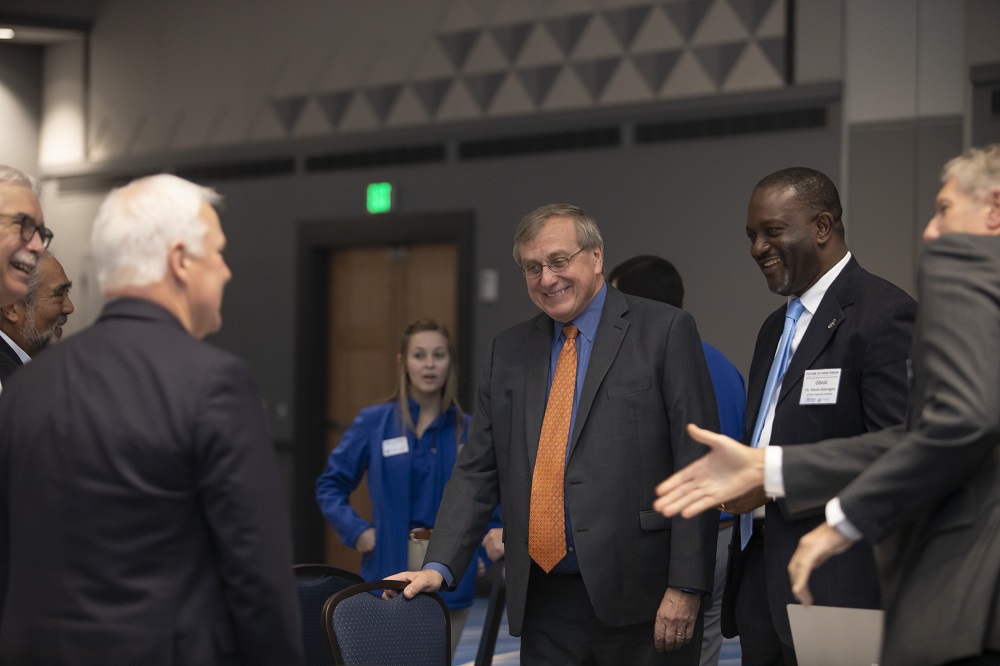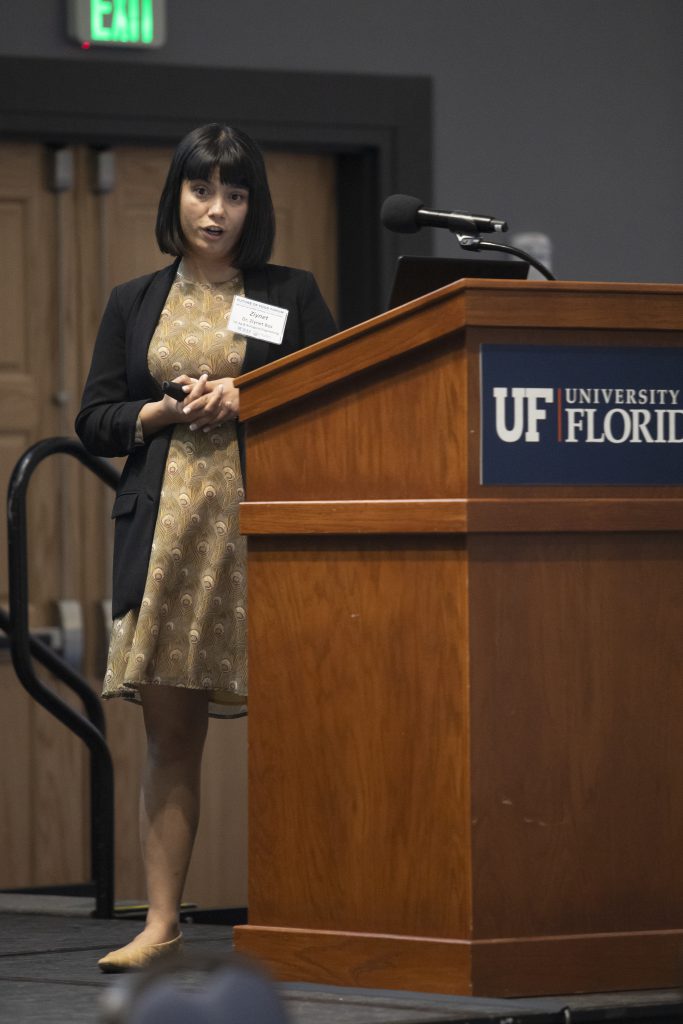I’m more convinced than ever that UF/IFAS has to be—and is—a central player in feeding the world of 2050. After all, food is our middle name.

Perhaps no one in UF/IFAS embodies our feed-the-world imperative more than Gbola Adesogan. In fact, the nine-country global food security project he leads with a team of UF/IFAS faculty and staff is called the Feed the Future Innovation Lab for Livestock Systems.
He’s a globe-trotting crusader for a more just and equitable food system that tackles everything from getting more protein and micronutrients to Sub-Saharan African infants to supporting the development of female smallholder livestock cooperatives in Nepal.
Adesogan, the Food Systems Institute director, and Cheryl Palm, the associate director, as well as a core team (Andrea Bohn, Kay Kelsey and Cathy Bester) and faculty, organized a day of panels and presentations. People from the Netherlands, Germany, Switzerland and across the U.S. spoke at the event, and others from France, Denmark, Austria, Norway attended.
The resulting Future of Food Forum sponsored by the UF/IFAS Food Systems Institute was a day that crackled with the energy of new ideas. The forward-looking symposium laid out the stark challenge we face but with the optimism of entrepreneurs who see opportunity.

Although they brought in excellent speakers from across the globe, Adesogan and the team also found compelling experts right here at UF. Ziynet Boz, of our Agricultural and Biological Engineering Department, for example, surprised me with statistics on how meat has a much lower packaging footprint than most other food industries. Dilorenzo and Silveira showed how greenhouse gas emissions from livestock can be reduced and how they can livestock systems can even sequester carbon.
The shape of the future is circular. Speakers talked about how to create circularity in food systems. That is recycling food and feed products and waste back into the supply chain instead of a landfill, creating a zero-waste loop. It involves reducing, recycling, reusing, repurposing, refurbishing and repairing.
Most of all, it involves rethinking. Among those who called for doubling down on circularity and regenerative agriculture was our keynote speaker, Syngenta CEO Erik Fyrwald. Thanks to the endowment that E.T. and Vam York established to bring such speakers to UF/IFAS audiences, we were able to hear from one of the world’s leading corporate agriculturalists.
The day was also an opportunity for us to strengthen our relationship with organizations, universities and passionate researchers around the world that could lead to more collaborations and greater impact.
I’ve been talking for the last few months about how meeting the challenge of feeding 10 billion people by 2050 will not be successful without a major contribution from the Southeast United States. Other regions of the world have natural limitations or policy restrictions on their ability to expand production.
Here in Florida, I see many challenges but no limits to what we might achieve. The future of food depends on it.
 2
2
